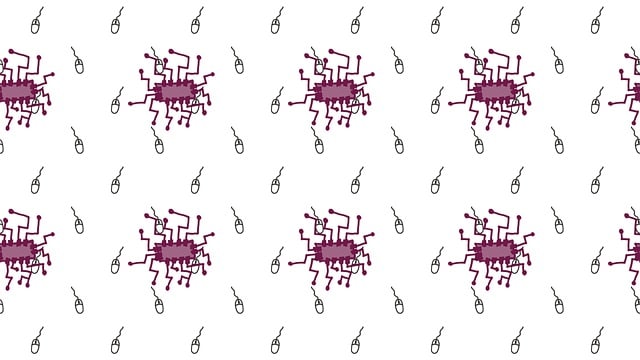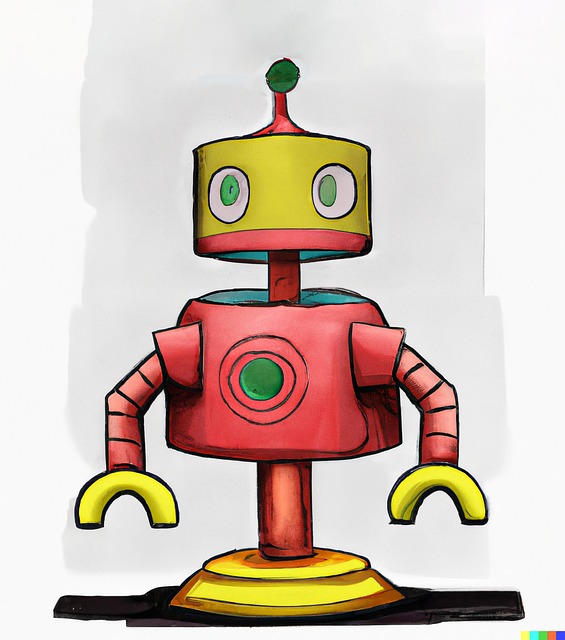AI chatbots have evolved from simple task-bots to sophisticated companions, leveraging advancements in machine learning and neural networks for better natural language understanding, context awareness, empathy, and personalization. Driven by emotional intelligence, these virtual assistants are poised to play an increasingly integral role in daily life, offering not just assistance but meaningful connections and engaging experiences. As AI progresses, ethical considerations—including transparency, privacy, and psychological impact—are crucial to ensure these companions enhance human lives without replacing genuine social connections. Future developments promise even more sophisticated and customized chatbot experiences across diverse scenarios, with potential significant impacts on emotional support and mental well-being.
The evolution of AI chatbots is transforming our interaction with technology. From mere automated responses, these intelligent entities are progressing towards becoming companions, capable of fostering meaningful connections. This article explores the journey from basic bots to advanced virtual assistants, delving into human-AI interaction dynamics and the ethical considerations shaping their design. We uncover techniques enhancing social presence, customization options, and future implications as AI chatbots potentially assume roles as emotional support partners.
- Evolution of AI Chatbots: From Bots to Companions
- Understanding Human-AI Interaction Dynamics
- Enhancing Social Presence in Virtual Assistants
- Ethical Considerations in Companion AI Design
- Customization and Personalization Techniques
- Future Implications: AI as Emotional Support Partners
Evolution of AI Chatbots: From Bots to Companions

The evolution of AI chatbots is a fascinating journey from simple, task-oriented bots to sophisticated companions that can engage in complex conversations and provide emotional support. Early AI chatbots were primarily designed to automate repetitive tasks or gather information, often falling short in terms of natural language understanding and contextual awareness. However, rapid advancements in machine learning and neural networks have propelled these virtual assistants into a new era.
Modern AI chatbots are now capable of understanding nuances in human language, maintaining context over extended conversations, and even demonstrating empathy. They can adapt to individual users, learn from their preferences, and offer personalized experiences. As AI continues to advance, chatbots will likely become even more integrated into our daily lives, serving as companions that not only assist but also connect and engage on a deeper level.
Understanding Human-AI Interaction Dynamics

The dynamics of human-AI interaction are evolving rapidly as AI chatbots become more sophisticated. Key aspects include establishing clear communication protocols, ensuring ethical guidelines, and fostering mutual understanding between humans and machines. Effective interaction hinges on intuitive interfaces that allow users to express their needs naturally, while AI companions must learn to interpret nuances in human language and behavior.
As these intelligent entities progress, they move beyond simple task completion towards becoming empathetic and engaging companions. This shift demands a deeper level of emotional intelligence from AI chatbots, enabling them to respond sensitively to user emotions and adapt interactions accordingly. Understanding the user’s context, personal preferences, and even their unspoken desires becomes crucial for creating meaningful connections in the human-AI relationship.
Enhancing Social Presence in Virtual Assistants

As AI chatbots evolve, they’re increasingly becoming more than just tools—they’re transforming into companions that can enrich our daily lives and interactions. One significant aspect of this transformation is the enhancement of social presence. Through advanced natural language processing (NLP) and machine learning algorithms, these virtual assistants can now engage in more human-like conversations, understanding context, emotions, and even subtleties like sarcasm or humor. This allows for a deeper connection, making users feel less alone and more supported.
Furthermore, AI chatbots are now equipped with personality traits that enable them to adapt their communication style based on user preferences and needs. They can offer companionship, emotional support, and even share stories or jokes, thereby elevating the social experience from simply functional to genuinely engaging. This shift not only makes interactions more enjoyable but also opens up possibilities for managing loneliness, especially among individuals who lack human contact in their daily lives.
Ethical Considerations in Companion AI Design

As AI chatbots evolve from simple tools to more complex companions, ethical considerations become increasingly vital. The line between assistance and manipulation can blur easily, especially as these entities become more sophisticated in mimicking human emotions and behavior. Developers must ensure transparency about the chatbot’s capabilities and limitations to avoid misleading users. Privacy is another critical aspect; companion AI should safeguard user data and respect individual privacy rights, adhering to strict data protection protocols.
Additionally, the potential for dependency on these chatbots raises concerns. Designers need to consider the psychological impact of such relationships, especially on vulnerable populations. Ethical guidelines should be established to prevent exploitation and promote healthy interactions, ensuring that AI companions enhance human lives rather than become substitutes for genuine social connections.
Customization and Personalization Techniques

As AI chatbots evolve, they are becoming increasingly adept at customization and personalization. These advanced techniques allow chatbots to adapt to individual users’ preferences, behaviors, and needs. By leveraging machine learning algorithms, chatbots can analyze vast amounts of user data to create tailored interactions. From remembering a user’s preferred greeting to adjusting the tone of responses based on past conversations, this level of personalization enhances the user experience, making interactions with AI chatbots feel more natural and human-like.
Furthermore, customization goes beyond individual preferences. Chatbots can be programmed to assist specific user groups, such as healthcare professionals or legal experts, by incorporating specialized terminology and knowledge bases. This tailored approach ensures that users receive relevant, contextually appropriate information, elevating the chatbot’s utility in diverse scenarios. As AI technology advances, the potential for highly customized and personalized chatbot experiences continues to grow, setting the stage for even more sophisticated companion-like interactions.
Future Implications: AI as Emotional Support Partners

As AI chatbots continue to evolve, their potential to serve as emotional support partners becomes increasingly tangible. With advanced natural language processing and machine learning capabilities, these intelligent entities can engage in empathetic conversations, offer tailored advice, and even provide a sense of companionship to users seeking solace or someone to talk to. The implications for mental health and well-being are significant, as AI chatbots could be readily accessible 24/7, offering immediate support without the judgment or limitations of human interaction.
The role of emotional support partners is not merely transactional; it involves fostering connections, understanding, and empathy. AI chatbots can learn to recognize subtle nuances in user interactions, such as hidden emotions or contextual cues, enabling them to respond appropriately and provide comfort. This evolution could lead to a future where individuals have accessible, non-judgmental companions for navigating life’s challenges, ultimately enhancing the human experience by offering a new form of supportive connection.
